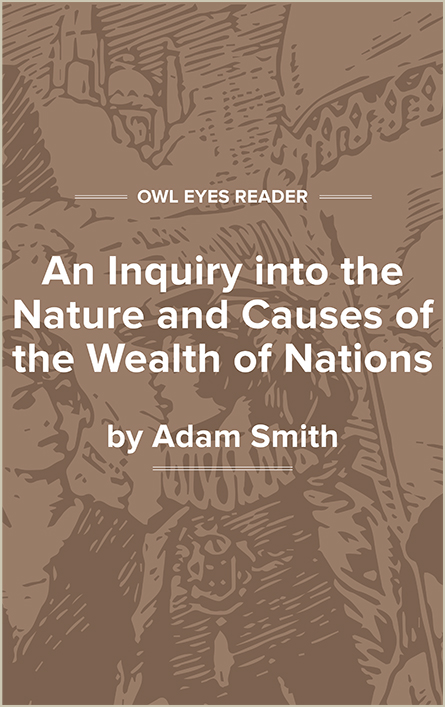Adam Smith Biography
Article abstract: Smith was one of the major luminaries of the eighteenth century Scottish Enlightenment. His The Wealth of Nations became the bible of nineteenth century liberals, and twentieth century conservatives were similarly animated by his vision of the beneficent results of the free marketplace. Economists, whatever their personal ideologies, continue to pay homage to Smith for his contribution to the study of economic development.
Early Life
Adam Smith was born in Kirkcaldy, a fishing and mining town near Edinburgh. His exact date of birth is unknown, although records show that he was baptized on June 5, 1723. His father, also named Adam, had died before his son’s birth. His mother, the former Margaret Douglas, was thus the most important influence in young Smith’s life. After attending the local school, Smith entered the University of Glasgow in 1737. In 1740, he won the Snell Exhibition, receiving a scholarship for study at Balliol College, Oxford, and spent the next six years there reading widely in the classics, literature, and philosophy. From 1746 to 1748, Smith lived with his mother in Kirkcaldy, until a group of friends arranged for him to give a series of public lectures in Edinburgh. These lectures proved so successful that he was named to the chair of logic at the University of Glasgow in 1751. When the equivalent position for moral philosophy became available that same year, he was elected to the place. Smith proved to be not simply a popular and effective teacher; he became heavily involved in university administration, serving as quaestor for six years, then as dean of faculty and as vice rector.
At Glasgow, Smith lectured on a broad range of topics: rhetoric and belles lettres, natural theology, ethics, and jurisprudence (law, government, and economics). Although nothing is known about his lectures on natural theology (except for a former student’s report that they dealt with “the proofs of the being and attributes of God, and those principles of the human mind upon which religion is founded”), student notes on his rhetoric and economic lectures have been published. Smith’s lectures on ethics became the basis of his first book, The Theory of Moral Sentiments. The work was an immediate success, it was translated into French and German, and it went through nine editions during Smith’s life. Influential politician Charles Townshend was so impressed that he engaged Smith to tutor his stepson, the young duke of Buccleuch. In early 1764, Smith gave up his Glasgow chair to accompany his charge on a Grand Tour of the Continent that lasted until late 1766. After his return, Smith worked briefly as an adviser to Townshend, who was then Chancellor of the Exchequer. Given a generous lifetime pension by Buccleuch, Smith then went back to Kirkcaldy to work on what would be his masterpiece. From 1773 to 1776, he was in London advising the government on economic matters, simultaneously continuing with his own writing. The publication of An Inquiry into the Nature and Causes of the Wealth of Nations (commonly known as The Wealth of Nations) on March 9, 1776, was a landmark in Western thought.
Life’s Work
Smith first made his reputation with The Theory of Moral Sentiments . The problem he set for himself in this book was to explain the forces responsible for the socialization of the individual to fit him for membership in a social group. Reflecting the optimistic deism of the Scottish Enlightenment, his starting point was that God had endowed human beings with inborn “moral sentiments” that bound them together. One such sentiment was the desire each person had for the praise and approval of others: “Nature, when she formed man for society, endowed him with an original desire to please, and an original aversion to offend his brethren. She taught him to feel pleasure in their favourable, and pain in their unfavourable regard.” The second was people’s capacity for imaginatively identifying with others:...
(The entire page is 3,238 words.)
Owl Eyes subscribers get unlimited access to our expert annotations, analyses, and study guides on your favorite texts. Master the classics for less than $5/month!

